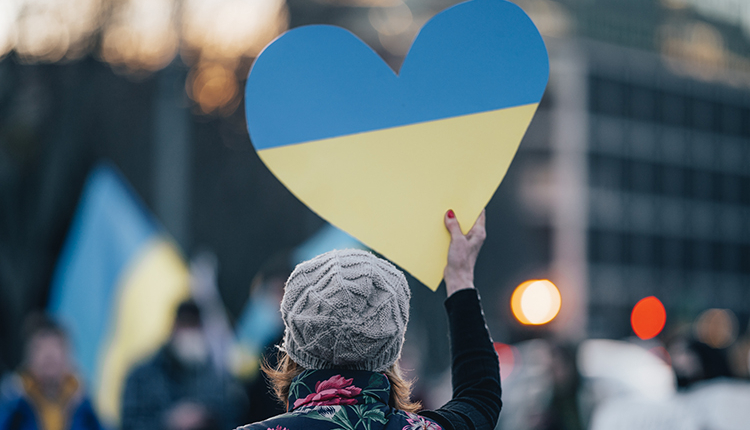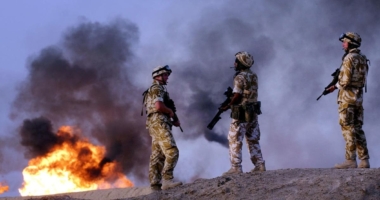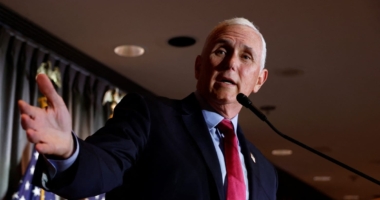National academies worldwide have provided emergency funding schemes to support Ukrainian researchers affected by the ongoing conflict in the region. However, there is still a need for continued support and long-term funding for the scientific community in Ukraine. The Polish Academy of Sciences and the US National Academy of Sciences have launched a three-year scheme supporting Ukrainian researchers, but the agency seeks more international funders to meet the demand. The EU also launched a €25 million fellowship scheme for Ukrainian scholars with options for returning to Ukraine built-in to counter the potential for brain drain. Directors from different organizations warned that brain drain is a concern, and there is a need to keep talented researchers in Ukraine. If the war is still ongoing in five years, returning to Ukraine will be a difficult decision for researchers who have already settled in other countries.
Crisis Management: Funding Support for Ukrainian Researchers
The ongoing conflict in Ukraine, exacerbated by Russia’s full-scale invasion a year ago, has caused uncertainty for researchers in the region. Many have been forced to leave their homes and institutions and seek refuge in other countries. In response, universities and research institutions across Europe have launched emergency support schemes, offering funding and fellowships to affected researchers.
One such researcher is Kateryna Dugina, a food science research associate at the University of Nottingham. She won funding in July 2022 through a British Academy scheme for researchers at risk. Despite the speed of events unfolding, Dugina did not encounter major challenges in putting in her application. This was largely due to the support of her host university. She emphasized the importance of understanding the purpose of the project and grant being applied for, stating that this helped her integrate faster and work more effectively.
However, Frank Albrecht, director of the Alexander von Humboldt Foundation’s Philipp Schwartz Initiative, warns of the risk of stigmatization for researchers who receive emergency funding. He stresses that funding should be seen as an academic undertaking, rather than a humanitarian one. Stigmatization is “extremely detrimental” and “entirely unfair,” he adds, and selection should be made on academic criteria.
Moreover, the influx of short-term options for displaced researchers during the early days of the conflict posed an unusual problem for Ukrainian researchers, according to Albrecht. There were almost too many options, making it difficult to identify the right one. Albrecht suggests that better coordination is necessary.
However, while short-term support was abundant, longer-term support has been lacking. The current situation for Ukrainian scientists is one of insufficient options and opportunities. The need for continued funding and support for displaced researchers remains a pressing concern.
Overall, while emergency funding schemes have helped some researchers, there is still much work to be done to ensure the continued support and success of the scientific community in Ukraine.
Long-Term Funding Support for Ukrainian Researchers
National academies across the world have been working to support Ukrainian researchers who have been affected by the ongoing conflict in the region. While emergency funding schemes have helped some researchers, there is still much work to be done to ensure the continued support and success of the scientific community in Ukraine.
One agency that has launched a long-term scheme is the Polish Academy of Sciences, which is working in collaboration with the US National Academy of Sciences. The three-year scheme, launched in December, supports a Ukrainian principal investigator in Poland along with funding for four more researchers who may be based in either Poland or Ukraine. However, the scheme has attracted an “enormous response” and more funding is urgently being sought from international funders to meet demand.
In September, the EU launched a €25 million fellowship scheme for Ukrainian scholars. While this level of funding was deemed “not much” by Jerzy Duszyński from the Polish Academy of Sciences, it does have options for returning to Ukraine built in, to counter the potential for brain drain.
Frank Albrecht, director of the Alexander von Humboldt Foundation’s Philipp Schwartz Initiative, warned that once researchers and their families settle in a country, returning becomes harder. Duszyński also raised concerns about brain drain and emphasized the need to keep talented researchers in Ukraine.
If the war is still ongoing in five years’ time, Duszyński warned, returning “will be a very difficult decision [for Ukrainian scientists] to make because they will be really rooted”. In the meantime, conversations are ongoing about what “a more systemic level of support” would look like.
Overall, while progress has been made in providing long-term funding support for Ukrainian researchers, the need for continued funding and support remains a pressing concern.
Don’t miss interesting posts on Famousbio










